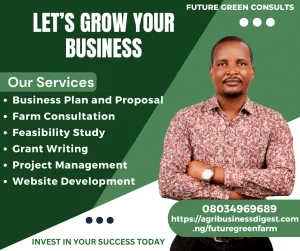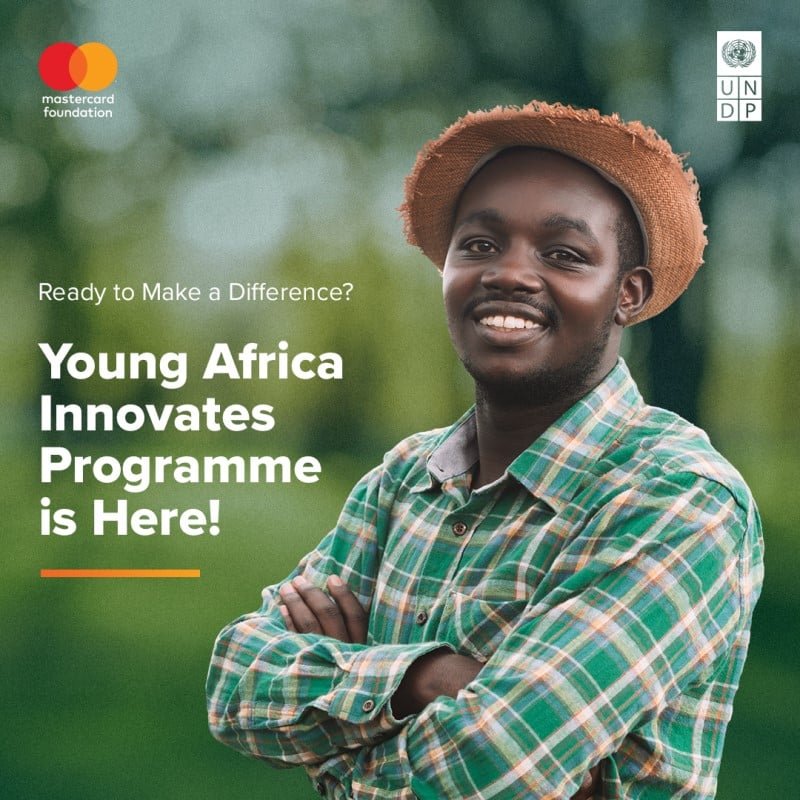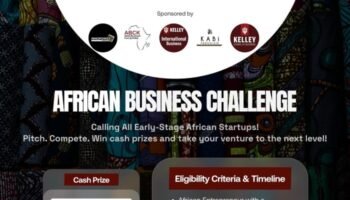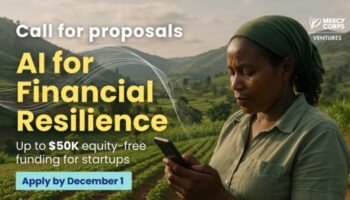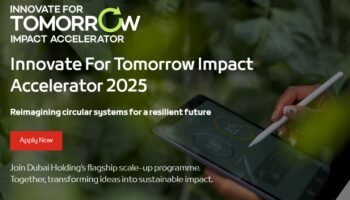Application is now open for Mastercard Foundation/UNDP Young Africa Innovates Programme. An initiative by Mastercard Foundation and UNDP to empower youth entrepreneurship in Nigeria.
Mastercard Foundation in partnership with the United Nations Development Programme, sets out a shared vision to leverage youth-led solutions to drive socio-economic development in Nigeria. The programme will focus on identifying, incubating and scaling solutions across a diverse set of sectors. At the core of the programme, innovators will be provided with technical support to test, validate and scale their solutions.
Young Africa Innovates ethos is rooted in inclusivity, ensuring that innovators from all walks of life are empowered to bring their visions to life. It aims to identify, incubate, and scale youth-led solutions that drive socio-economic development in Nigeria.
Young Africa Innovates Objectives
- To Identify 5,000 innovators.
- To Support capacity building for 2,500 solutions
- To Incubate 300 ventures with technical and financial assistance.
Young Africa Innovates Focus Areas
Problem Statements for States and Sectors
The problem statements were developed through desk research and input from the government, private sector, CSOs, sector experts and innovation hubs to reflect the current state of the sectors in the selected states and pave the way for targeted solutions and impactful interventions.
The programme will take place across 7 states in the first year, with specific sector focus in each state:
- Borno (Energy)
- Ekiti (Healthcare)
- Lagos (Financial Inclusion)
- Anambra (Commerce)
- Kaduna (Agriculture)
- Kwara (Creative Sector) and
- Akwa Ibom (Tourism).
Akwa Ibom State: Tourism
- Challenges:
- Limited Tourism Awareness: People in Akwa Ibom lack awareness and benefits of tourism in the city and how it can boost the economy of the state.
- Few Accommodation Choices: Akwa Ibom mostly has city hotels, with few cheap options or interesting places to stay for different types of tourists.
- Lack of Marketing: Akwa Ibom doesn’t advertise itself well as a place to visit, so many tourists don’t know about its attractions.
Kwara State: Creative Economy
- Challenges:
- Unserved Needs:
- Kwara state creative sector lacks essential support:
- Legal guidance: Copyright, contracts, and brand management require specialized legal assistance, and this is lacking in the industry.
- Strategic marketing: Reaching target audiences and navigating advertising platforms require specific skills.
- Financing Hurdles:
- Traditional financial institutions struggle to cater to creatives due to:
- Unconventional income: Irregular income streams make loan qualification difficult.
- Project-based work: Rigid loan structures don’t reflect the nature of creative work.
- Intangible assets: Traditional institutions undervalue intellectual property of creative endeavours.
- Infrastructure Gap:
- Limited workspaces: Absence of dedicated creative workspaces hinders collaboration and access to shared resources.
- Equipment constraints: Many creatives lack the resources to invest in crucial equipment and software.
Kaduna State: Agriculture
- Challenges
- Knowledge Gap on Climate Change:
- Limited awareness about climate-resilient practices hinders adaptation to changing weather patterns.
- Farmers struggle to prepare for extreme weather events due to a lack of knowledge about early warning systems and mitigation strategies.
- Informed decision-making on land management, resource allocation, and sustainable practices is restricted because of lack of information.
- Limited Digital Access:
- Inability to access online resources, weather forecasts, and market updates restricts informed decision-making.
- Adoption of modern farming techniques, pest control strategies, and improved seeds is hampered.
- Connection to wider markets and potential buyers through digital platforms is limited.
- Financial Constraints:
- Restricted access to essential financial resources hinders investment in crucial inputs such as high-quality seeds, fertilizers, pesticides, and equipment.
Anambra State: Commerce
Challenges:
- Digital Divide:
- Limited data access: High cost of mobile data plans and internet access restricts essential activities such as market research, marketing campaigns, and customer behaviour analysis.
- Digital illiteracy: Lack of digital literacy hinders the ability of MSMEs to fully utilize data-driven strategies for growth, putting them at a disadvantage compared to larger corporations.
- Low Trust in Digital Payments:
- A significant portion of small businesses hesitate to adopt digital payment platforms due to lack of trust, hindering the widespread adoption of these technologies.
- Complex Cross-Border Expansion:
- Logistical hurdles: Complex logistics, inefficient transportation infrastructure, and limited cross-border collaboration create delays and increase costs for businesses seeking to expand into other African markets.
- Varying regulations: Inconsistent regulations across countries pose additional challenges for businesses operating across borders.
Ekiti State: Healthcare
Challenges
- Unsustainable Financing Model:
- Limited access to quality care: Insufficient funding restricts the availability of essential equipment, medication, and qualified personnel.
- Unequal healthcare access: Disparities that negatively impact vulnerable populations.
- Hindered health outcomes: Preventive measures and emergency response are inadequate.
- Fragmented Medical Records:
- Ineffective patient care: Lack of complete medical history hinders diagnosis, treatment plans, and continuity of care.
- Resource mismanagement: Inefficient allocation due to unavailable past medical data leads to unnecessary spending.
- Weakened public health: Fragmented data impedes disease outbreak tracking, risk population identification, and effective interventions.
- Weak Community Engagement in Emergencies:
- Limited public awareness: Basic knowledge about first aid, emergency protocols, and available resources is lacking.
- Unprepared communities: Absence of training programs and emergency drills hinders swift and effective response during emergencies.
- Unsustainable initiatives: Lack of centralized coordination jeopardizes the long-term effectiveness of community engagement efforts.
Lagos State: Financial Inclusion
Challenges:
- Distrust in Digital Finance: Digital finance is hard to trust because people worry about hackers, scams and not understanding how it works. This makes many people avoid using the platforms and services.
- Limited Access for Low-Income Residents: Lack of formal identification, high bank charges, and minimum balance requirements make it difficult for low-income individuals to participate in the formal financial system.
- Financial Illiteracy: A significant portion of the population lacks the knowledge to comprehend financial products, make informed decisions, and develop sound financial habits.
Borno State: Energy
Challenges:
- Renewable energy infrastructure and Development:
- Lack of access and resources to build solar farms to maximize energy output.
- Limited knowledge and awareness on energy solutions such as solar installation, energy marketplace and consultation services.
- Access to Tailored Finance:
- Absence of readily available tailored loans, grants, and collaborative efforts to subsidize energy solutions and encourage adoption and sustainability.
- Unstable Environment:
- Access to energy efficient and sustainable shelter solutions for temporary settlements and low-income households.
- Attacks on power lines and infrastructure by insurgent groups can disrupt electricity supply and discourage investment in the sector.
Benefit
- A total of 2,500 ideas and solutions are selected cumulatively from the seven designated states.
- Selected applicants will have the opportunity to showcase their impact and connect with like-minded innovators, potential collaborators, and industry experts.
- Selected projects will undergo a one-month boot camp, be incubated, receive financial and technical support, and benefit from mentorship by seasoned professionals in their field.
Young Africa Innovates Programme Eligibility Criteria
- Solutions founded by individuals between the ages of 18-35, people in rural and marginalized communities, women and people living with disabilities.
- Solutions submitted must address a specific challenge faced within the designated sector of the state.
- Applications from women are highly encouraged.
- Applications from persons with disabilities are highly encouraged.
How to Apply
Click Here to Apply
For more details visit:Young Africa Innovates
Application Deadline: May 30th, 2024
Elevate Your Business With Our Expert Services!
